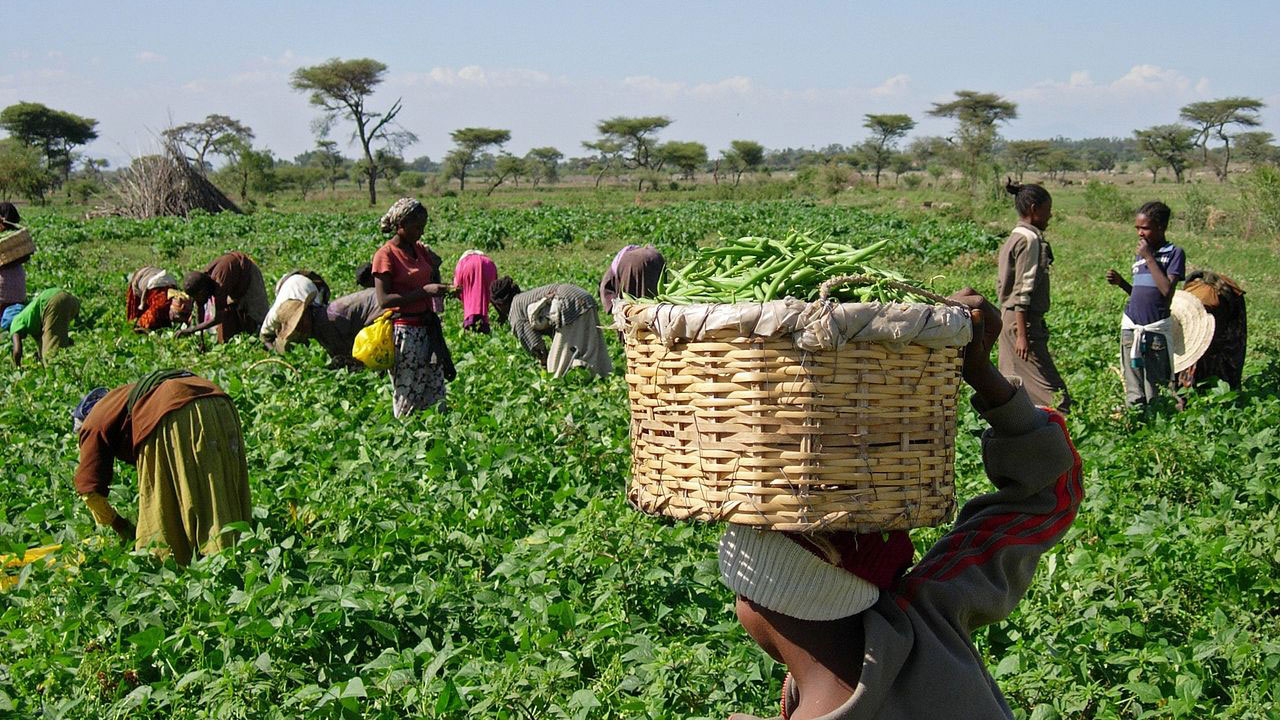 ActionAid Holds National Stakeholders Consultative Meeting On 2024 Agric Budget
ActionAid Holds National Stakeholders Consultative Meeting On 2024 Agric Budget
The country’s agricultural sector contributed less to the Gross Domestic Product (GDP) in Q1 2023, compared to the same period in 2022. The sector showed a decline of 0.9 per cent after years of positive growth, unlike in the previous year, where it was the largest contributor to the country’s GDP in Q2 of 2022 at 23.3 per cent, beyond the contributions of trade (16.8); telecommunication (15), manufacturing (8.7) and the oil and gas sector (6.3).
The revelation came to the fore during the National Stakeholders Consultative Meeting, organised by ActionAid Nigeria, on the 2024 agriculture budget, where stakeholders expressed optimism that the sector has the largest potential to lead millions of Nigerians out of poverty.
The meeting, held in Lagos, in collaboration with the Federal Ministry of Agriculture and Rural Development (FMARD); Federal Ministry of Finance, Budget and National Planning; Oxfam; ONE Campaign and the Department of Agriculture and Rural Development of the ECOWAS commission, with over 102 participants.
It was aimed at facilitating conversation amongst key stakeholders connecting the continental framework, the Comprehensive Africa Agriculture Development Programme (CAADP) targets and government interventions within the National Agricultural Technology and Innovation Policy (NATIP) in Nigeria. It also aims to strengthen citizens’ participation towards making the 2024 Agriculture budget responsive for food security and wealth creation.
The stakeholders observed the need for the sector to be given utmost priority in national economic policies, national and subnational budgets, taking into cognisance effective budgeting and timely releases.
They regretted that the late releases of fund to the sector continues to impede the capacity of the federal and state governments to drive socio-economic development, including food and nutrition security within the policy thrust of the diversification of the economy towards agriculture.
In a communiqué released after the meeting, the stakeholders observed that the issue with budget disbursement is not only in the releases, it must be timely to make necessary impact in the lives of the beneficiaries who are mostly smallholder farmers.
“While the implementation of the 2022 and 2023 budgets are ongoing concurrently, the utilisation of capital projects in the sector in 2022 seems to have improved significantly. However, due to late budget releases, it can hardly be said that the allocations largely supported smallholder farmers, especially women who are still confronted with challenges of the very limited access to credits, farm insecurity in the form of banditry and herders-farmers clashes, natural disasters, late budget releases and crowd-outs by political farmers and contractors who are the budget’s first liners.
“Nigeria’s agriculture sector is largely proliferated by hazardous agrochemicals and is further compounded with its wrong application by farmers. Government budget spending through the FMARD and the CBN Anchor Borrowers Programme (ABP), favour inorganic pesticides over organic bio-agro inputs.
“These pesticides are often highly hazardous to humans, the environment, and biodiversity, particularly when wrongly applied, and cause a loss in foreign revenue resulting in food export rejection,” it read.
They lamented that Nigeria loses $362.5m yearly in terms of foreign exchange to the ban on exportation of beans in the last eight years, hence the importance of reducing the use of hazardous chemicals to help the country save money, export good and acceptable agricultural produce in the global market and promote sustainable agricultural practices.
The stakeholders recommended that the federal, state and legislators should scale up public investment in the sector, and ensure timely consideration, passage and timely budget releases and utilisation as a strategic approach to increasing food production, reducing hunger and poverty and achieving the Maputo/Malabo commitments.
“As approved by the 44th National Council on Agriculture and Rural Development (NCARD), the three tiers of government should commit 10 per cent of their yearly budget to the sector to meet Maputo/Malabo declaration required to support at least six per cent growth rate for the sector as postulated in the CAADP framework.
“There should be political will to allocate at least 10 per cent of yearly budgets and actual revenues to the agriculture sector with appropriate budget lines so that Nigeria will be on track in the next Biennial Reporting to the African Union Heads of States and Government in line with the Malabo declaration and commitments of 2014.”
The stakeholders called on FMARD, Ministries of Agriculture and other Ministries, Department and Agencies (MDAs) to consistently create budget lines to ensure wider stakeholder consultations in the budget formulation, provide continued coordination and the implementation of the consultative meeting on agriculture budget yearly at the federal and state levels.
“The agriculture sector requires a special funding to enable FMARD achieve its mandate. The Federal Government should release a take-off grant for the implementation of the National Agricultural Development Fund.
“FMARD and state ministries of agriculture should create a yearly budget line for support for smallholder women farmers reflecting on what should be prioritised, especially in the 2024 budget based on realities on ground.”
They also stressed the need to strengthen the monitoring of implementation of agricultural projects in the budget by all relevant stakeholders, using adapted CAADP Results measurement framework and reports documented, shared and reviewed to enhance lessons learning and improvement in the budget implementation.






